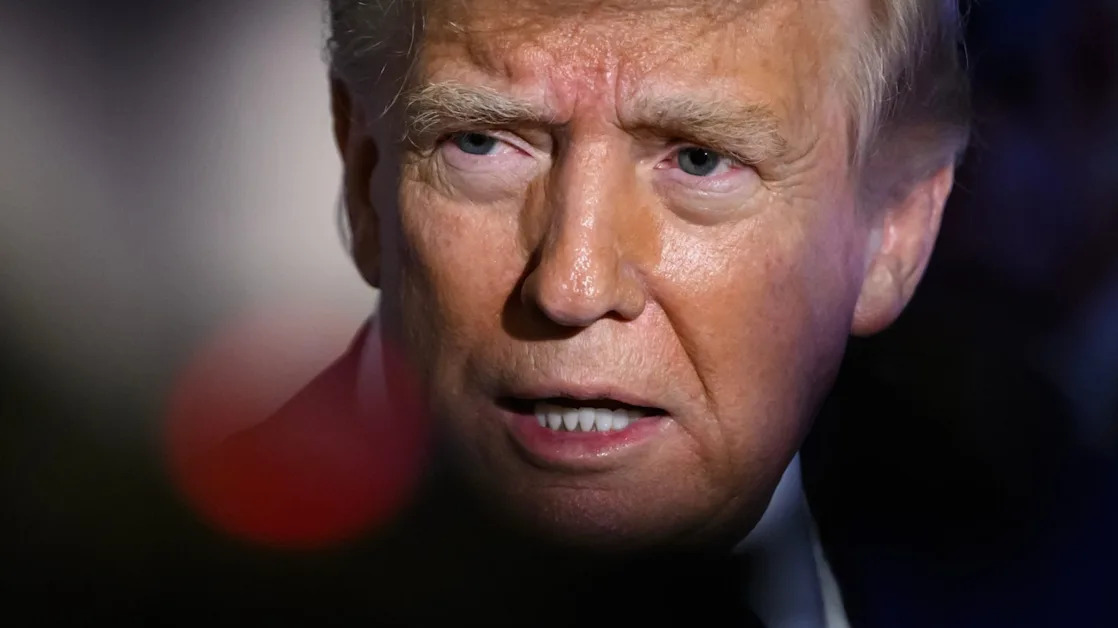Asian markets go into a 2008-style freefall, after Trump calls his tariffs needed ‘medicine’ for the U.S.
Asia spent Monday searching for comparisons to a historic market drop, after President Donald Trump affirmed that the U.S. needed “medicine” to fix its persistent trade deficit, even as
his "Liberation Day" tariffs
send markets off a cliff.
Is Monday's market plunge the worst since the onset of the COVID pandemic? The worst since the Great Financial Crisis of 2008? Or, for some markets, is it the worst…ever?
Hong Kong’s benchmark Hang Seng Index fell by 13.2%, its worst decline since 1997 and close to
wiping out its gains
for 2025. Tencent, China’s most valuable company, dropped by 12.5%. PC manufacturer Lenovo fell by over 22.9%, the largest drop by a Global 500 company based in the Asia-Pacific region.
China’s CSI 300, which tracks companies traded in Shanghai and Shenzhen, fell by 7.1%.
Pain was spread across the region. Japan’s Nikkei 225 plunged by over 7.8% on Monday, its third day of steep losses since Trump announced 24% tariffs against the country. South Korea’s KOSPI index fell 5.6% and Australia’s S&P/ASX 200 is down by 4.2%. India's NIFTY 50 is down by around 4.5% as of early afternoon, India time.
Taiwan halted trading after declines triggered the exchange’s circuit breaker almost immediately after markets opened. The island’s benchmark TAIEX index dropped by 9.7%; TSMC, Asia’s most valuable company, plunged 10%, wiping $74 billion from the chipmaker’s market value in a matter of minutes.
By the mid-afternoon local time, Singapore’s Straits Times Index is down by around 8%, with DBS, Southeast Asia’s largest bank, falling by over 9.5%. The plunge in the STI is nearing the index's record 8.3% drop from 2008, during the Global Financial Crisis.
Negative sentiment is likely to continue into the U.S. S&P 500 futures are currently down by 4.9%, while Nasdaq 100 futures are down 5.6%, putting the U.S. on track for a bear market.
On Sunday, Trump told reporters that he wanted the U.S. trade deficit “solved” as part of any deal with China. He also shrugged off investor worries, which have dragged the S&P 500 down by 10.5% since April 2.
"Forget markets for a second—we have all the advantages, ”
Trump said.
“I don’t want anything to go down, but sometimes you have to take medicine to fix something,”
Other members of the president’s inner circle suggested that the White House will stick with tariffs. “There is no postponing,”
commerce secretary Howard Lutnick said
on CBS News’s
Face the Nation
, in response to a question as to whether Trump might delay his new tariffs.
Messaging from Trump administration officials was often confused. On NBC’s
Meet the Press
,
treasury secretary Scott Bessent
said that over 50 nations had approached the U.S. to start negotiations, and suggested Trump had created “maximum leverage” for a deal.
Since April 2, several Asian economies,
including Vietnam
,
Taiwan
and Cambodia, have offered to reduce, if not remove, their tariffs on U.S. imports. Yet Peter Navarro, a senior trade advisor to the president,
suggested
that a straightforward zeroing out of tariffs wouldn’t be enough to satisfy the administration.
“If you simply lowered our tariffs and they lowered our tariffs to zero, we’d still run about a $120 billion trade deficit with Vietnam,” Navarro said on Fox News. “The problem is all of the non-tariff cheating that they do.”
Monday is also the first trading day since Beijing
imposed a 34% tariff
on all U.S. imports, in retaliation to Trump’s “Liberation Day” taxes. China’s retaliatory measures go into effect on April 10, the day after Trump’s tariffs begin.
Beijing also slapped export controls on a range of rare earth minerals, launched new anti-monopoly probes into U.S. industries, and also added several companies to its “unreliable entities” blacklist.
Steep U.S. tariffs, as well as
the end of the
de minimis
exemption
, are likely to hurt China’s economy, particularly those sectors that rely on the U.S. consumer market. HSBC estimates that U.S. tariffs could reduce China’s GDP growth by 1.5 percentage points.
Still, economists suggest that China is well-prepared for its second trade tussle with Trump. “China has spent years preparing for a potential escalatory trade war scenario,” Zoe Zongyuan Liu, a senior fellow for China studies at the Council on Foreign Relations, said
on Bloomberg
on Monday.
Beijing is likely to stimulate domestic consumption and expand into new markets beyond the U.S. China plans to make consumption a "major driver and ballast" for economic growth, the
state-owned
People’s Daily
wrote in
a front-page editorial
on Monday.
Other countries, like
Australia
and
Singapore
, are publicly disappointed but holding off on retaliatory measures for now. And some,
like the Philippines
, see relatively lower U.S. tariffs as an opportunity to take market share from competitors.
Japan and South Korea are also planning to contact the U.S. to ask for a reduction in the tariff rate. “We must make it clear that our country is not doing anything unfair,” Japan Prime Minister Shigeru Ishiba said to
the country's parliament
on Monday.
Update, April 7, 2025: This piece has been updated with Hong Kong's market close.
This story was originally featured on
Fortune.com
